Contents:-
Day 1 : Paris – Cochin
Day 2 : Cochin – Allepey – 100 km – 2h
Day 3 : Alleppey – Periyar – 195 km – 6h
Day 4 : Periyar – Madurai – 165 km – 4h
Day 5 : Madurai – Trichy – 190 km – 4h
Day 6 : Trichy – Tanjore – 100 km – 3h
Day 7 : Tanjore – Chidambaram – Pondichéry – 180 km – 7h
Day 8 : Pondichéry
Day 9 : Pondichéry – Mahäbalipuram – 100 km – 2h30
Day 10 : Mahäbalipuram – Chennai - Paris
Jour 1 : Paris – Cochin
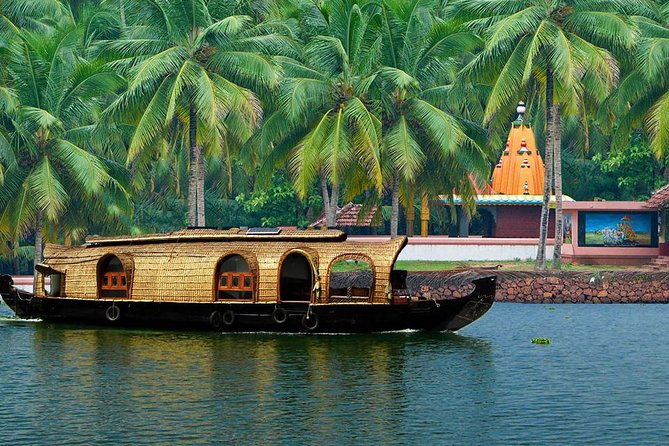
Arrival in Cochin (Depending on your international flight schedule). Welcome by our Guide at the airport. Then transfer to the hotel. Night at the hotel.
Day 2 : Cochin – Allepey – 100 km – 2 hours
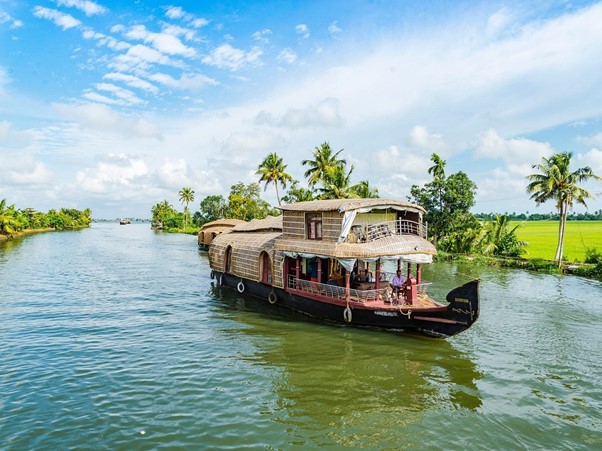
After breakfast, visit Cochin.
Cochin: “the Queen of the Arabian Sea”, the largest natural port in India. Cochin designates a collection of islands and cities. It is here that the first European "settlers" settled in India around 1500, led by Vasco da Gama and died there with the title of Portuguese Viceroy of India. His tomb exists, but the remains were actually brought back to Lisbon. Tradition has it that the apostle Thomas preached the gospel there. It is also one of the most important commercial ports of Kerala.
Visit Cochin: the Dutch Palace (closed on Fridays), or Mattancherry Palace, you will find some of the most beautiful sacred murals in South India. On the first floor, the coronation hall contains objects that belonged to the ruler of Cochin, Raja Veera Kerala Varma (1537-1561).
Cochin Fort, Saint Francis Xavier Church, the oldest European church in the country. It was built in 1503 by Portuguese Franciscan monks who accompanied the expedition led by Pedro Alvarez Cabral. Originally made of wood, the church was rebuilt in stone around the middle of the 16th century. Vasco da Gama died in India in 1524 with the title of Portuguese Viceroy of the Indies. His tomb still exists but his remains were brought back to Lisbon.
Lunch.
Continuation of the visit to Cochin, then road to Allepey.
Board the Houseboats called “Kettuvallam” for navigation on the
“backwaters”, which will peacefully take you through the tropical countryside inland along the banks shaded by coconut trees and emerald rice fields irrigated with a labyrinth of canals and lagoons, where traditional boats glide.
Facilities of the “house boats”: rooms (air-conditioned) with bathroom. A kitchen with a traditional Puthenangadi cook, navigator/guide and viewing platform.
Dinner and overnight on board.
Day 3: Alleppey – Periyar – 195 km – 6 hours
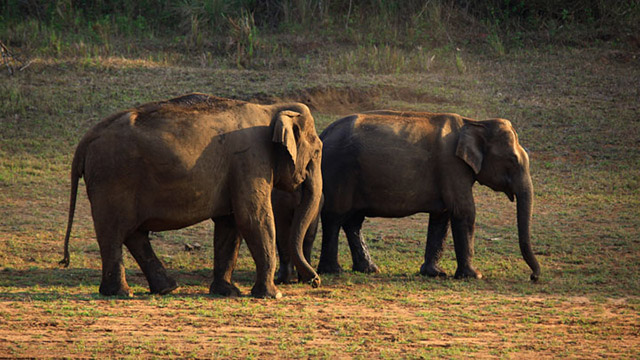
Breakfast on board. Morning navigation on the backwaters towards Allepey. Landing near Allepey.
UA short tour of the city Allepey, the Venice of India.
Departure towards Periyar direction.
Lunch.
Road through the Cardamom Mountains and tea, rubber and spice plantations (pepper, nutmeg, cardamom, etc.)
Stop at a tea plantation.
In Periyar, it is possible to do Ayurvedic massages and in the evening, it will also be possible to participate in a performance of Kalarippayatt martial arts.
Dinner and overnight at the hotel.
Day 4: Periyar – Madurai – 165 km – 4 hours
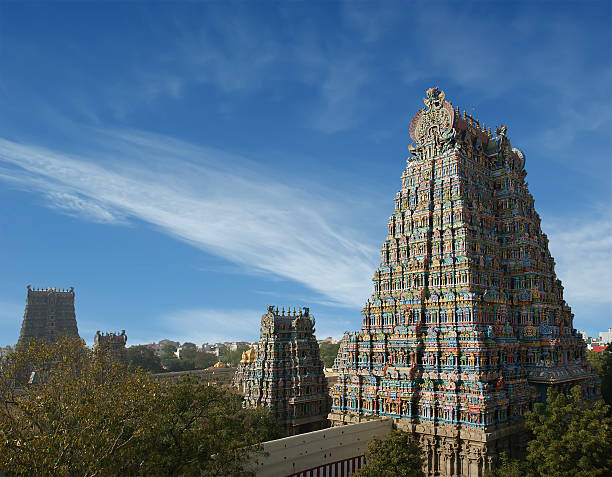
Early in the morning, a walk in the national park with English-speaking nature specialist guides, then you will return to the hotel for breakfast.
Periyar: in the heart of the mountains, it is one of the most beautiful reserves in India. This park extends over an area of 777 km² in part of the Western Ghats (high mountain range). Periyar has a splendid artificial lake with forests populated by water birds like darter, heron, egret and kingfisher. The habitat here is one of the best for Asian elephants.
VYou will continue with a visit to spice plantations, cocoa, pepper and cardamom, and almost all the spices found in India.
Departure for a boat safari on the lake to better see wild elephants, gaurs, antelopes and monkeys, but be aware that the animals tend to hide. The site has around a thousand elephants, which increases your chances of spotting a majestic pachyderm; tigers are less numerous, there are only around fifty. (4 p.m./6 p.m.).
After lunch, drive to Madurai.
Along the way, stop at a brick factory and possibility of visiting a school (excluding Indian school holidays).
Continuation of the road towards Madurai, the Holy city of South India, from where the Cauvery delta opens like a fan which was the capital of the Cholas, the most brilliant kingdom known to ancient India. south.
Upon arrival check into the hotel.
In the evening, you will go to the temple by tuk-tuk for the Sunset ceremony of Shiva who, before joining the "Holy of Holies", wishes, carried by the Brahmins, good evening to his two sons including Ganesh the elephant god: a big moment !
(Around 8:00 p.m.)
Dinner and overnight at the hotel.
Day 5: Madurai – Trichy – 190 km – 4 hours
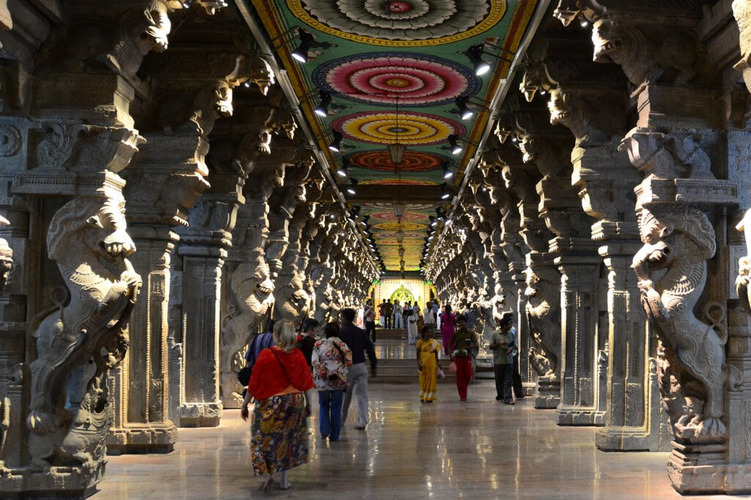
After breakfast, visit Madurai.
Madurai is famous for its production of significant quantities of Malligi (Jasmine) flowers which are plucked within a 25 km radius of the city. Jasmine is one of the most important raw materials in the perfume industry and its extract is the base product for a majority of perfumes around the world. An estimated annual production of 15 tonnes of jasmine extract worldwide is estimated. India produces almost half of the world's output. France is one of the main importers.
You are in the heart of Tamil country. Discovery of the city with the fascinating Meenakshi-Sundareshvara temple in Vijayanagar style. It is a true masterpiece, where you can admire an astonishing abundance of columns and corridors embellished with countless statues, in an atmosphere charged with the life and faith of the Hindu faithful.
Then visit the Tirumali Nayak Palace which dates from the 17th century. It is built in the style of Indo-Muslim art with Italian influence.
Time for a stroll through the market. Madurai is renowned for its silk and ornate wooden sculpture.
Lunch.
Departure for Tiruchirapalli, located in central Tamil Nadu on the bank of the Cauvery also known as “Trichy”.
Dinner and overnight at the hotel.
Day 6: Trichy – Tanjore – 100 km – 3 hours
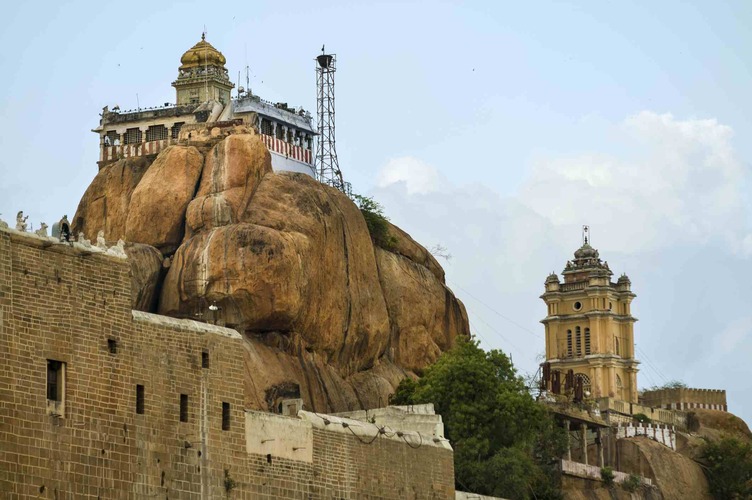
Breakfast at the hotel.
Visit the Rock Fort (437 steps!), from where you have an impressive view of the region and of the 6 enclosures and 21 towers of the Srirangam temple which you will then visit. It is the largest in Tamil Nadu, and like all late Dravidian style temples, it is made up of multiple enclosures.
Walk through the China Town Market, located at the foot of the Rock Fort.
Continue to Tanjore.
Lunch.
Visit Tanjore, the former capital of the Cholas, with the Saraswati Mahal Palace, built in the 17th century, which houses a superb collection of bronze Cholas statues from the 8th to the 12th century, as well as the Saraswati Mahal Library which exhibits 30,000 drawings on palm leaves .
In Tanjore, discovery of the city with a visit to the still active Brihadishwara temple dedicated to the god Shiva and listed as a UNESCO world heritage site. This granite sanctuary rises 70 meters high and is topped by a monolithic dome weighing 80 tonnes.
Dinner and overnight at the hotel
Day 7: Tanjore – Chidambaram – Pondicherry – 180 km – 7am
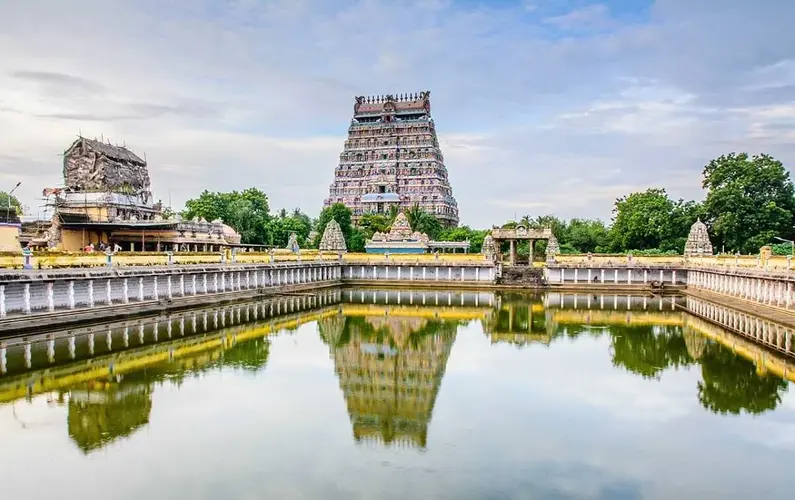
Breakfast at the hotel.
Departure for Chidambaram where you will visit a remarkable sacred complex characteristic of Dravidian India: the Nataraja Temple where Shiva is worshiped in the form of the god of cosmic dance.
Two of the gopurams are decorated with sculptures illustrating the 108 positions of the Natya Shastra, the treatise on the dramaturgy of Hindu ritual dances.
Lunch.
Departure for Pondicherry, former French trading post.
Pondicherry: the nostalgic trading post sleeping on the edge of the Indian Ocean, seems not to have forgotten the three centuries of French presence. It was in 1673 that François Martin, an adventure-loving merchant, founded a trading post to which he gave the name Poudouchery (the new village), a name which, misspelled by Colbert's scribes, was to become Pondicherry. From its foundation, Pondicherry was divided into a white city and a black city, separated by a canal.
On arrival check-in and dinner at the hotel.
Night at the hotel.
Day 8: Pondicherry
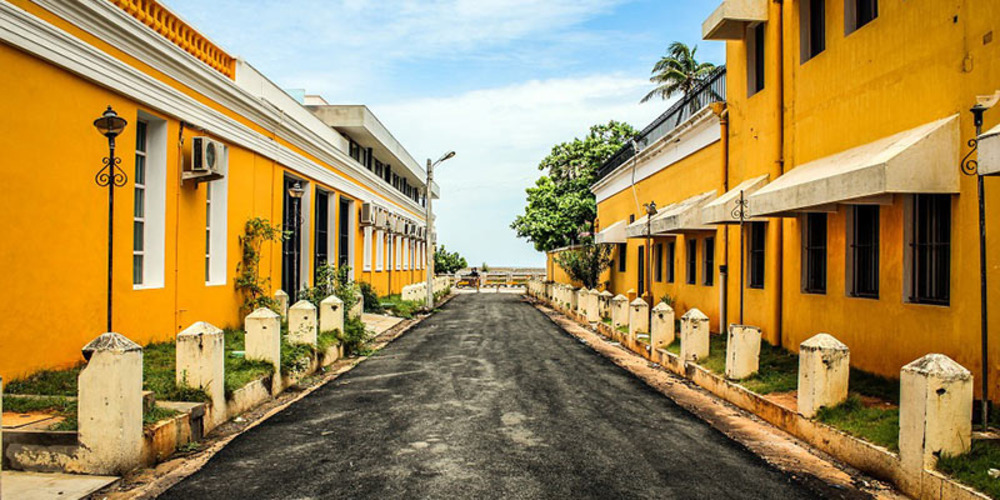
After breakfast, visit Pondicherry.Pondichéry.
To begin, discovery of the ancient French city. You will see many buildings reminiscent of the Belle Epoque: the Lycée Français, the French School of the Far East, the Church of Notre Dame des Anges, the embroidery workshop of the nuns of Saint-Joseph de Cluny (OPEN EVERY DAY EXCEPT FOR LOCAL HOLIDAYS), the war memorial, the monument dedicated to Gandhi on the seafront and the Dupleix statue.
Then, visit the Sri Aurobindo Ashram, a meditation center located in the city. Originally made up of a few buildings, it gradually expanded in multiple directions. The central point of the community remains the house where the Mother and Sri Aurobindo resided, rue de la Marine. Sri Aurobindo, Bengali philosopher and poet, founded the community that bears his name with a French woman. He had planned a university city “Auroville” to accommodate scholars and artists of all nationalities. It was only a dream. His tomb is a place of contemplation and veneration, where true fervor reigns.
Visit the Manakula Vinayak temple and stroll through the market. Then, you will take part in a game of pétanque!
Lunch facing the Alliance Française and close to the annex of the University of Law of Pondicherry, this restaurant offers a multitude of Indo-Sino-Italian-French specialties. Everyone will find what they are looking for there.
CContinue to Auroville..
Visit to Auroville which will be devoted to visiting the city with the Ashram of Sri Aurobindo philosopher and poet, who founded, with a French woman, the community which bears his name. He had planned a university city "Auroville" to accommodate scholars and artists of all nationalities, it was only a dream.
Dinner and overnight at the hotel.
Day 9: Pondicherry – Mahäbalipuram – 100 km – 2h30
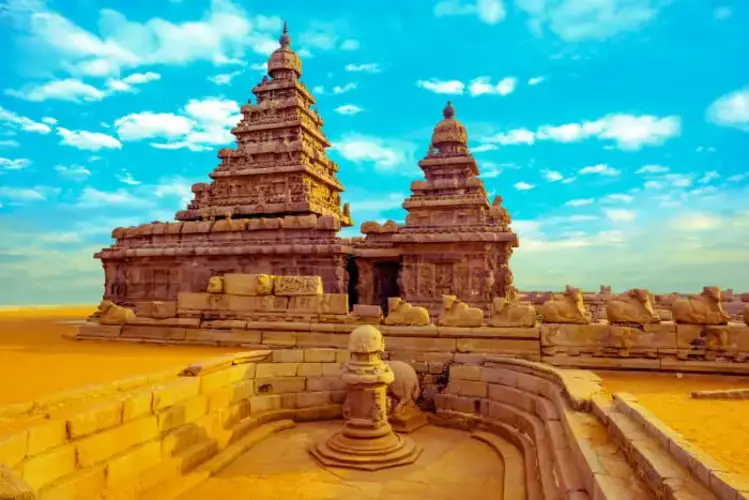
After breakfast, drive to Mahäbalipuram.
On the Tamil coast, the Pallava dynasty created a trading port at Mahäbalipuram, from where it exported its culture and civilization to Indonesia, Malaysia, Cambodia and Vietnam in the 7th and 8th centuries. The town is full of charm with its stonecutters, its tranquility and the friendliness of its inhabitants.
The morning will be devoted to visiting the site made up of temples, a huge bas-relief fresco and caves sculpted with high reliefs dealing with the myths of Hinduism. All of them are masterpieces of Pallava art.
Lunch.
You will continue towards the discovery of the Descent of the Ganges also called "the penance of Arjuna", a grandiose fresco carved in bas-relief in a rock wall. You will also see all of the five Rathas, monolithic temples dug out of the rock and the Shore Temple – emblematic image of Mahäbalipuram – built in granite by Pallava and built on the seaside, from which it is only a few dozen apart meters and protect with trees against corrosive sea spray. A dyke of rocks was also built to protect the temple from strong tides and erosion.
Dinner and overnight at the hotel.
Day 10: Mahäbalipuram – Chennai – Paris
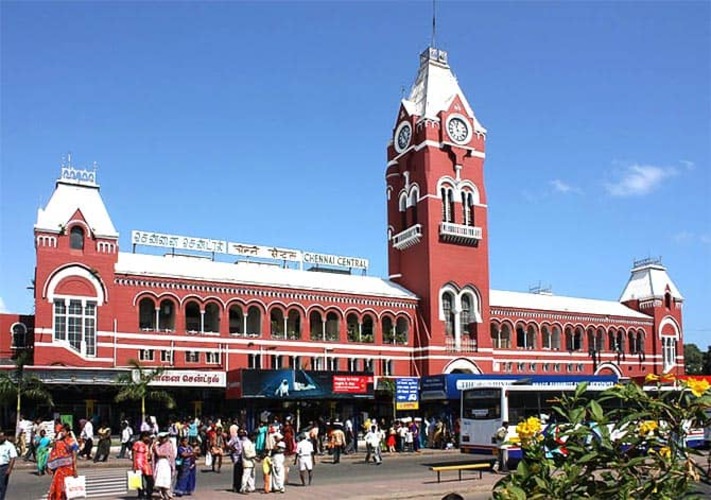
Breakfast at the hotel.
Road to Chennai, visit to Chennai.
In the evening transfer to the international airport for your destination flight.
End of our services.









